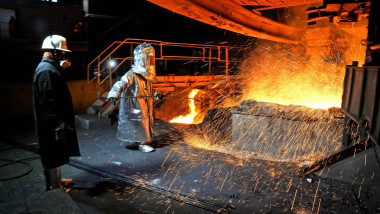Indonesian presidential vote highlights tradeoffs between fast growth and a healthy environment
JAKARTA, Indonesia (AP) — A presidential election in Indonesia, the world’s third-largest democracy, is highlighting choices to be made as the country seeks to profit from its rich reserves of nickel and other resources that are vital to the global transition away from fossil fuels.
President Joko Widodo capitalized on Indonesia’s abundant nickel, coal, oil and gas reserves as he led Southeast Asia’s biggest economy through a decade of rapid growth and modernization that vastly expanded the country’s networks of roads and railways
Increasingly, voters are demanding that the men vying to succeed him address the tradeoffs between fast growth and a healthy environment in the world’s fourth most populated country.
Indonesia has the world’s largest reserves of nickel — a critical material for electric vehicles, solar panels and other goods needed for the green energy transition.
It’s also the biggest producer of palm oil, one of the largest exporters of coal and a top producer of pulp for paper. It also exports oil and gas, rubber, tin and other resources.
